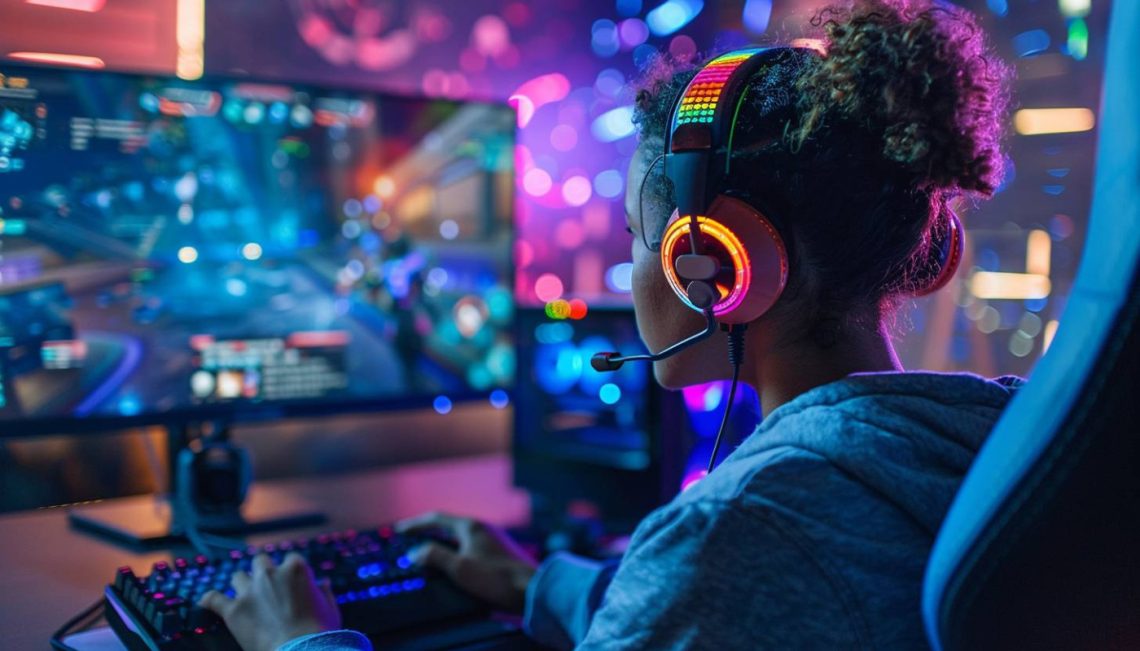Online gaming has transformed from a niche hobby to a massive global phenomenon over the past few decades. With advancements in technology, internet speeds, and gaming platforms, it has redefined how we experience entertainment, socialize, and even work TAXI BET 88. From simple browser-based games to immersive, multiplayer virtual worlds, online gaming has continuously pushed the boundaries of digital interaction. In this article, we explore the evolution of online gaming, its influence on culture, and the societal and economic implications it holds today.
A Brief History of Online Gaming
Online gaming began in the early 1990s when the internet started becoming more accessible to the public. The first wave of online games were relatively simple, often text-based or with basic graphics. One of the earliest and most influential games was MUD (Multi-User Dungeon), a text-based multiplayer game that allowed players to explore virtual worlds, solve puzzles, and battle enemies together. These early games laid the groundwork for what would evolve into today’s sophisticated online ecosystems.
By the mid-1990s, with the rise of faster internet connections and more powerful computers, graphical online games began to emerge. WarCraft II and Quake became some of the first games to gain a massive online following. These titles allowed players to connect over local area networks (LANs) and, eventually, the broader internet, signaling the beginning of competitive multiplayer gaming.
In the early 2000s, World of Warcraft (WoW) took online gaming to new heights with its immersive, persistent world and a subscription-based model. WoW’s success popularized the concept of Massively Multiplayer Online Role-Playing Games (MMORPGs), and it became a cultural touchstone for millions of gamers worldwide.
The Rise of Esports and Competitive Gaming
One of the most significant developments in the online gaming world has been the rise of esports. Competitive gaming, once considered a niche activity, has exploded into a billion-dollar industry. Titles like League of Legends, Counter-Strike: Global Offensive, Dota 2, and Fortnite have paved the way for professional esports leagues, tournaments, and teams.
Esports has created an entirely new career path for gamers, with top players earning sponsorships, prize money, and even salaries akin to traditional sports professionals. Global tournaments such as The International (Dota 2) and the League of Legends World Championship now attract millions of viewers, often surpassing the viewership of mainstream sporting events.
The esports industry has also led to the emergence of new technologies, including high-performance gaming rigs, advanced streaming platforms like Twitch, and even virtual reality (VR) gaming experiences. Online gaming and esports have become inextricably linked, with millions of fans engaging not only as participants but as spectators.
Social Impact: Connection and Communities
Online gaming has become a virtual meeting ground for people around the world, fostering communities that transcend geographical boundaries. The social aspect of gaming is perhaps one of its most significant contributions. Whether through cooperative gameplay or competitive matches, games provide a space for people to connect, make friends, and work together to achieve common goals.
Platforms like Discord and Steam have further enhanced the social experience, allowing gamers to chat, share content, and even form guilds or clans for ongoing teamwork. Virtual spaces in games like Minecraft and Roblox have even allowed users to create their own games, further pushing the idea of shared creation and collaboration.
In addition to fostering new friendships, online gaming has also created support networks for marginalized groups. For example, many LGBTQ+ individuals have found solace and community in online spaces where they can freely express themselves and connect with others facing similar experiences.
However, it’s worth noting that the social aspect of online gaming isn’t always positive. The anonymity of the internet can sometimes lead to toxic behaviors, harassment, and online abuse. Developers have worked to implement moderation tools, and many gaming communities are actively addressing the issue, but it remains an ongoing challenge.
Economic and Cultural Impacts
The economic impact of online gaming cannot be overstated. It has become one of the most lucrative sectors in the entertainment industry. The global gaming market is expected to exceed $200 billion in revenue, with a significant portion of that coming from online gaming, including microtransactions, in-game purchases, and subscription services. Companies like Epic Games, Riot Games, and Blizzard Entertainment have built multimillion-dollar empires based on their successful online games.





